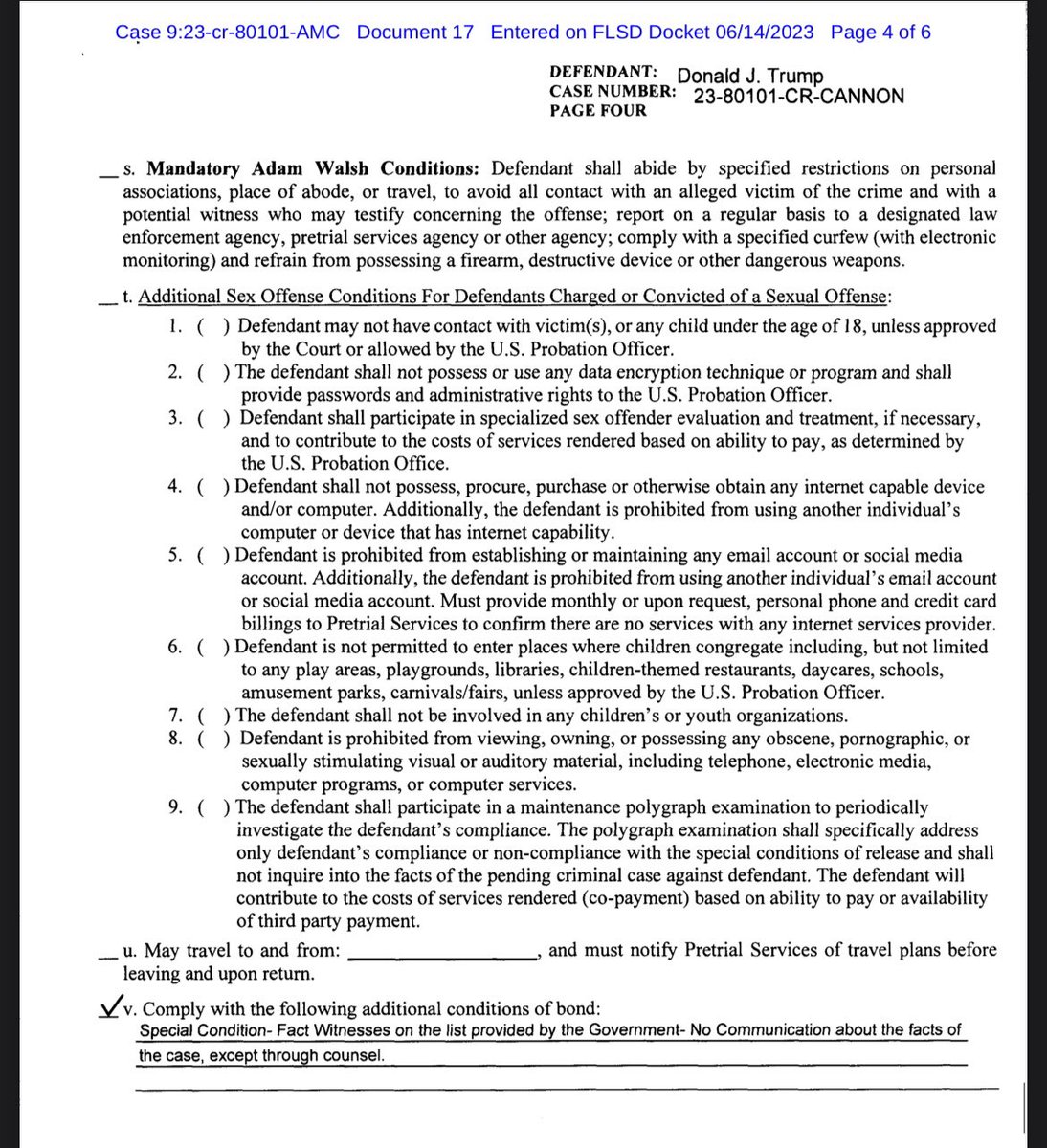NEW: Tonight, concerned that Trump’s escalating rhetoric about the standard instructions attached to the MAL search warrant will result in violence against law enforcement, the Special Counsel’s office is asking not for a gag order, but to modify Trump’s conditions of release. 1/
storage.courtlistener.com/recap/gov.usco…
storage.courtlistener.com/recap/gov.usco…
That matters because when Trump was first indicted, his bond — which he signed — made clear that his continued release was conditioned on his compliance with certain terms. 2/
For example, Trump’s order not only prohibits him from violating any federal, state or local law while on release but also precludes his speaking to any fact witnesses on a list shared with his lawyers about the facts of the case, except through their respective lawyers. 3/




But in asking to modify Trump’s conditions of release to prohibit his making statements that pose a “significant, imminent, and foreseeable danger” to law enforcement involved in the investigation and prosecution of the MAL case, the Special Counsel is upping the ante. 4/
Why? Because where a defendant violates a condition of his release, the consequences can include “the immediate issuance of a warrant for the defendant’s arrest, a revocation of release, and order of detention,” as well as a prosecution for contempt. 5/ 

But perhaps most importantly, if Judge Cannon denies this motion, it is immediately appealable to the 11th Circuit under federal statute, which provides in relevant part:
law.cornell.edu/uscode/text/18…

law.cornell.edu/uscode/text/18…

• • •
Missing some Tweet in this thread? You can try to
force a refresh




